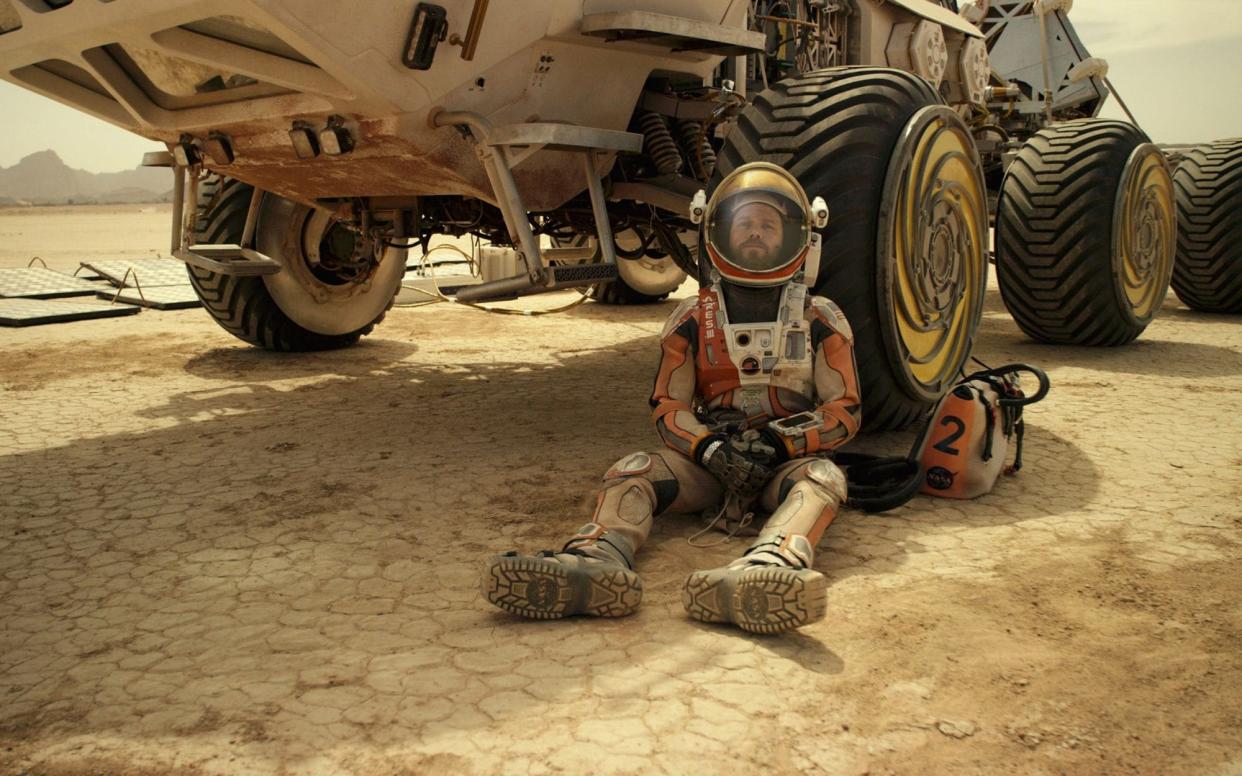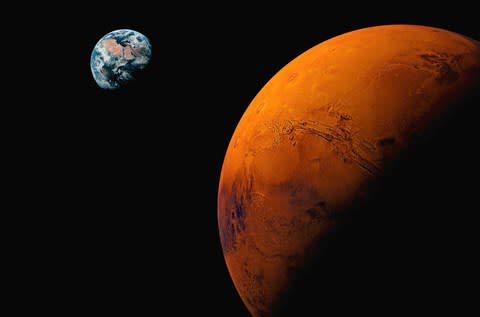Why astronauts might not have the stomach for a mission to Mars

Space radiation would be likely to kill or severely weaken astronauts long before they reached Mars, a study by Nasa suggests.
New research has found that the assault on space travellers’ intestines would form at least as big an obstacle to reaching the red planet as the technological challenge.
The exposure on a trip to Mars or beyond would be likely to result in long-term functional impairments, such as ineffective nutrient absorption, or cancer.
Scientists made the discovery after exposing mice to low doses of electrically charged iron particles, one of the most harmful forms of galactic cosmic radiation (GCR).
Atoms and molecules that carry an electric charge are known as ions.
Heavy ions such as iron and silicon act like tiny, fast-moving bullets and are more destructive than X-rays and gamma rays, which are mass-less high frequency forms of light.
Life on Earth is protected from energetic heavy ions by the planet's magnetic field, which deflects them away.

The study compared mice exposed to heavy iron ions, others exposed to gamma rays, and a third group that was not subjected to any form of radiation.
Exposures were designed to simulate what astronauts could expect after months in deep space.
Intestinal cells from the heavy ion mice failed to absorb nutrients adequately and formed cancerous polyps.
Lead scientist Dr Kamal Datta, from Nasa's Specialised Centre of Research at Georgetown University in Washington DC, said: "With the current shielding technology, it is difficult to protect astronauts from the adverse effects of heavy ion radiation.
"Although there may be a way to use medicines to counter these effects, no such agent has been developed yet.
"While short trips, like the times astronauts traveled to the Moon, may not expose them to this level of damage, the real concern is lasting injury from a long trip such as a Mars or other deep space mission, which would be much longer."

